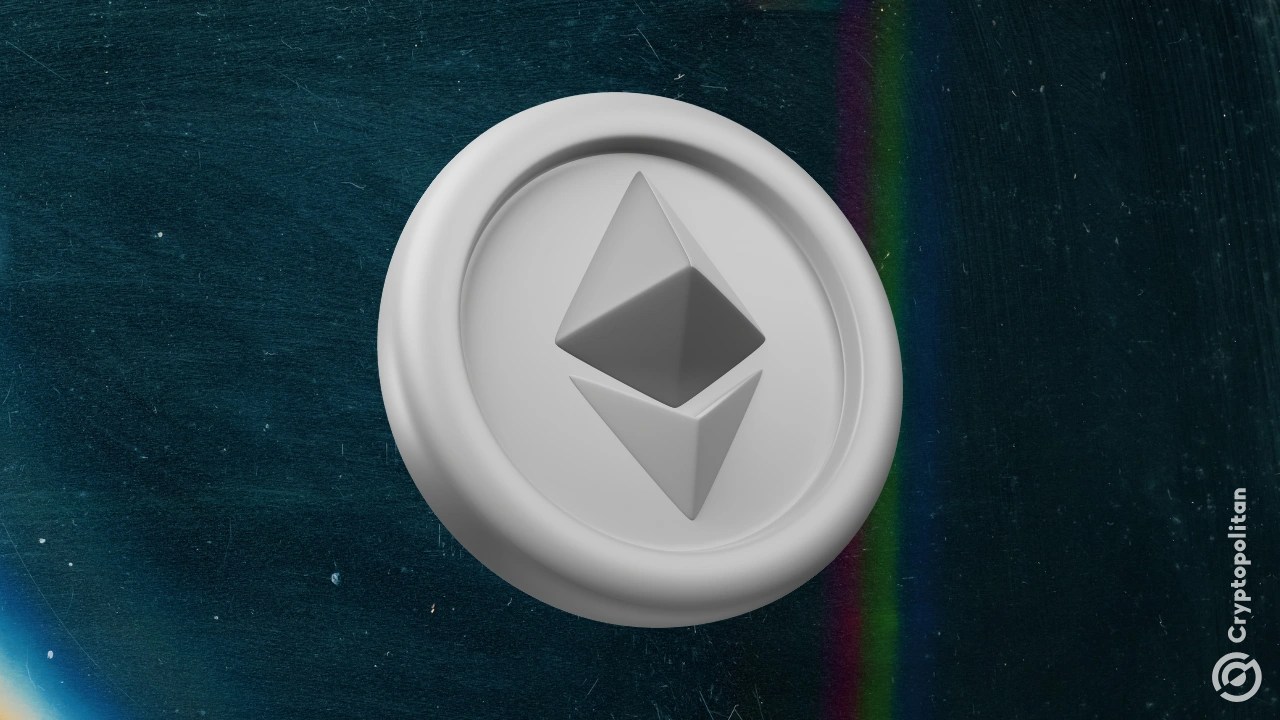Urgent Clarity: SEC Targets Crypto Conflicts of Interest with New Rules
BitcoinWorld
Urgent Clarity: SEC Targets Crypto Conflicts of Interest with New Rules
The cryptocurrency world is constantly evolving, bringing both innovation and complex challenges. One of the most pressing issues gaining attention is crypto conflicts of interest. Recently, SEC Chairman Paul Atkins announced a pivotal move to address these very concerns, aiming to establish clear regulatory standards.
This initiative comes amid heightened scrutiny, particularly concerning the cryptocurrency dealings of influential figures and their families. The goal is simple yet crucial: to safeguard market integrity and protect investors from potential abuses arising from undisclosed or unmanaged interests.
What Exactly Are Crypto Conflicts of Interest?
At its core, a conflict of interest arises when an individual or entity has competing professional or personal interests. In the crypto space, this could mean:
- An exchange owner also trading on their own platform with insider knowledge.
- A project founder promoting their token while holding a significant, undisclosed stake.
- Regulators or policymakers having financial ties to crypto businesses they oversee.
These situations can create an unfair advantage, erode trust, and potentially lead to market manipulation. Chairman Atkins, speaking at Georgetown University’s Psaros Center for Financial Markets and Policy conference, emphasized the SEC’s commitment. He stated that the agency will “root out” any such situations uncovered and “set clear standards.”
Why Is Addressing These Conflicts So Crucial Now?
The digital asset market has matured rapidly, attracting significant investment and mainstream attention. However, this growth also amplifies the risks associated with unchecked conflicts. When key players operate without transparent guidelines, it undermines the very principles of fair and open markets.
Consider the potential impact:
- Investor Protection: Unscrupulous practices can lead to significant financial losses for everyday investors.
- Market Integrity: Undisclosed interests can distort market prices and create an uneven playing field.
- Public Trust: A lack of clear rules erodes confidence in the entire cryptocurrency ecosystem, potentially hindering its long-term adoption and growth.
The SEC’s proactive stance on crypto conflicts of interest is a direct response to these growing concerns, signaling a move towards greater accountability.
What Challenges Lie Ahead for Regulating Crypto Conflicts of Interest?
Regulating the crypto space is notoriously complex due to its global, decentralized, and often pseudonymous nature. Establishing clear rules for conflicts of interest presents unique hurdles:
- Jurisdictional Issues: Crypto businesses often operate across borders, making it challenging to apply a single set of rules.
- Anonymity/Pseudonymity: Identifying beneficial owners and their diverse interests can be difficult.
- Rapid Innovation: New crypto products and services emerge constantly, often outpacing regulatory frameworks.
Despite these challenges, the SEC’s intent is to create adaptable and robust standards. The goal is not to stifle innovation but to foster a healthier, more transparent environment where participants can operate with confidence.
What Will New Standards for Crypto Conflicts of Interest Look Like?
While the specifics are yet to be detailed, we can anticipate new standards focusing on transparency and disclosure. This might involve:
- Mandatory disclosure requirements for crypto project founders, exchange operators, and key influencers regarding their holdings and related business interests.
- Stricter ethical guidelines for individuals involved in crypto regulation and policy-making.
- Enhanced enforcement mechanisms to penalize non-compliance and deter future conflicts.
These measures aim to create a level playing field, ensuring that all participants, from large institutions to individual investors, can engage in the crypto market with greater assurance.
A Path Towards Greater Transparency
The SEC’s commitment to addressing crypto conflicts of interest marks a significant step towards a more mature and trustworthy digital asset landscape. By setting clear standards, the agency aims to mitigate risks, enhance investor protection, and foster sustainable growth within the crypto ecosystem.
This move is not just about enforcement; it’s about building a foundation of trust. As the crypto market continues to evolve, transparent and fair practices will be paramount for its long-term success. All stakeholders, from innovators to investors, stand to benefit from a clearer, more equitable regulatory environment.
To learn more about the latest crypto market trends, explore our article on key developments shaping cryptocurrency institutional adoption.
Frequently Asked Questions (FAQs)
Q1: What is a conflict of interest in the context of cryptocurrency?
A1: A conflict of interest in crypto occurs when an individual or entity has competing interests—personal or professional—that could improperly influence their actions or decisions in the digital asset market, potentially for personal gain and at the expense of others.
Q2: Why is the SEC addressing crypto conflicts of interest now?
A2: The SEC is addressing these conflicts due to the rapid growth of the crypto market, increased investor participation, and growing controversies surrounding undisclosed interests of prominent figures. The aim is to protect investors and maintain market integrity.
Q3: Who is Paul Atkins, and what is his role in this initiative?
A3: Paul Atkins is the Chairman of the Securities and Exchange Commission (SEC). He has announced the agency’s intention to establish clear regulatory standards to identify and eliminate conflicts of interest within the cryptocurrency sector.
Q4: How might new regulations on crypto conflicts of interest benefit investors?
A4: New regulations are expected to benefit investors by increasing transparency, reducing the potential for market manipulation, and ensuring a fairer playing field. This fosters greater trust and reduces the risks associated with undisclosed or unethical practices.
Q5: Will these new rules stifle innovation in the crypto space?
A5: The SEC’s stated goal is not to stifle innovation but to create a more secure and transparent environment. By setting clear boundaries, the rules aim to build a foundation of trust that can support sustainable and responsible innovation in the long term.
Did you find this article insightful? Share your thoughts and help spread awareness about the crucial steps being taken to enhance transparency in the crypto market! Share this article on your social media platforms to keep the conversation going.
This post Urgent Clarity: SEC Targets Crypto Conflicts of Interest with New Rules first appeared on BitcoinWorld.
You May Also Like

Adam Wainwright Takes The Mound Again Honor Darryl Kile

3 Mid-Cap Altcoins Set to Outperform: The Best Crypto Buys Right Now
